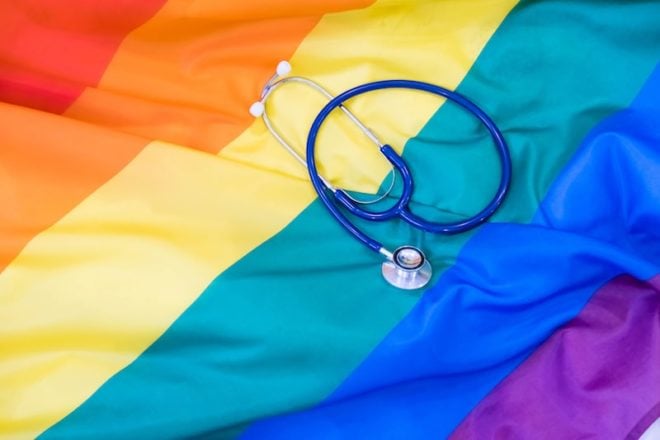
If bisexual men and women weren’t discriminated against by healthcare providers, they might be more likely to seek medical care, according to a UCLA study. Photo: iStock/yavdat
Discrimination by healthcare providers might cause bisexual men and women to have the worst access to medical care, according to a study released today.
The findings from the UCLA Center for Health Policy Research study found that almost ¼ of bisexual men and women avoided having a primary doctor or delayed seeking medical care.
Health Disparities
“Sexual minorities who have had a bad experience with a medical provider because of their sexual orientation may try to avoid repeating it,” said Susan H. Babey, co-author of the study and co-director of the Health Policy Research’s Chronic Disease Program.
The UCLA study used combined data from the 2011 to 2014 California Health Interview Surveys. Data on transgender people is not included because the survey only began collecting transgender data in 2015-16.
Bisexual men, women worst access
The findings show that 24 percent of bisexual men and 22 percent of bisexual women said they don’t have a primary care doctor, compared to 22 percent of straight men and only 13 percent of gay men.
As far as delaying medical care, 21 percent of bisexual men and 29 percent of bisexual and lesbian women said they’ve delayed seeking medical care, compared to only 13 percent of straight men and 18 percent of straight women, according to the study.
The study looked at differences in three areas based on people’s sexual orientation:
- Access to care
- Behaviors that negatively affect health (such as smoking or not exercising)
- Health problems that can result from those behaviors (such as developing hypertension or being overweight)
“Our study shows bisexuals have among the greatest need for regular health care, but are the least likely to get it,” said Joelle Wolstein, the study’s lead author and a research scientist at the Health Policy Research Center. “Even if they have a high-quality insurance plan through an employer, health equity is far from a reality for many LGBTQ patients.”
Here are other findings.
Binge drinking
- 52 percent bisexual men
- 50 percent of bisexual women
- 43 percent of lesbians
- 42 percent heterosexual men
- 36 percent gay men
- 27 percent of heterosexual women
Smoking
- 23 percent bisexual women, lesbians
- 20 percent bisexual men
- 17 percent gay, heterosexual men
- 10 percent heterosexual women
Obesity
- 35 percent lesbians
- 27 percent heterosexual men
- 26 percent bisexual women
- 24 percent heterosexual women
- 21 percent gay men
- 20 percent bisexual men
